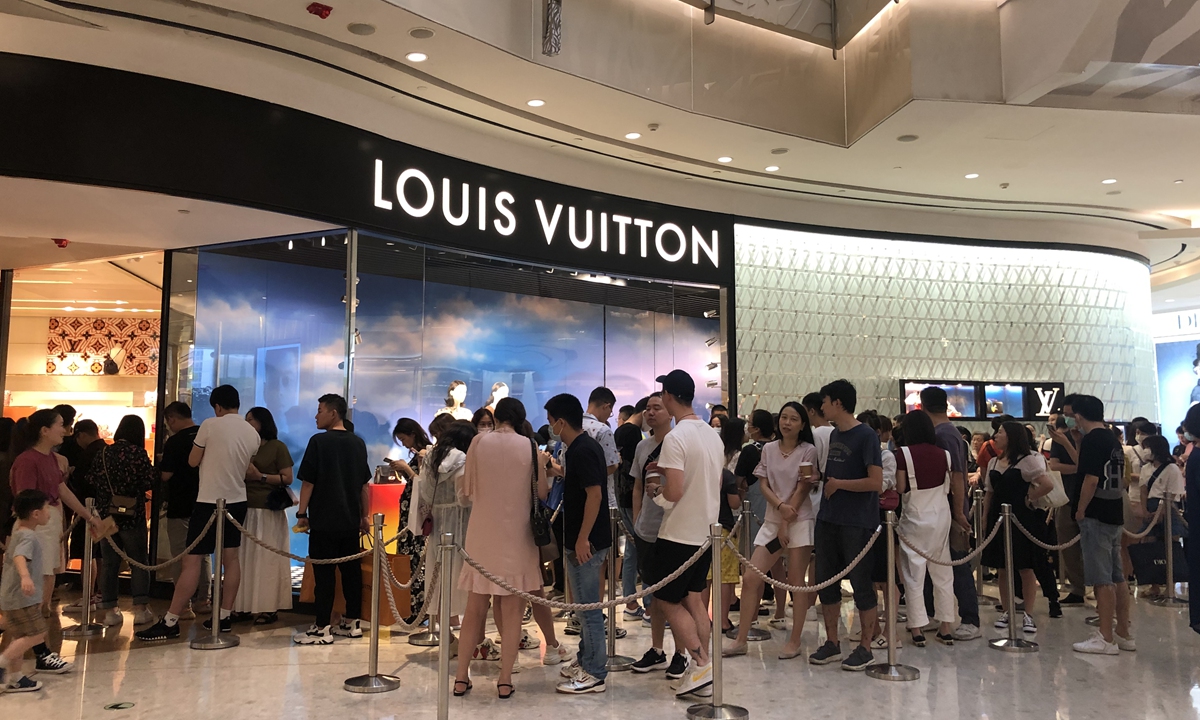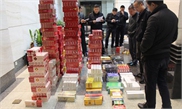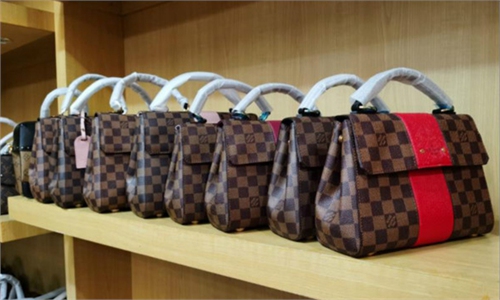Alibaba's AI platform recognizes counterfeit luxury products sold online amid booming industry in China

In the International Finance Center (IFC) in Pudong, Shanghai, long queues are seen on August 29, 2020 in almost every luxury store including Louis Vuitton. Photo: Cao Siqi/GT
As Chinese consumers become the main engine for the global luxury industry, Chinese e-commerce giants and researchers in artificial intelligence (AI) industry are also strengthening their skills and systems to tackle counterfeit products in a booming industry.
Chinese e-commerce giant Alibaba recently updated its AI platform and made it able to identify authentic and counterfeit logos of luxury brands in 30-50 milliseconds. The speed is 10 times quicker than the speed people blink, industry media reported Wednesday.
The platform was built by the Alibaba Turing lab and it contains a database of more than 1 million logos covering 500 luxury products categories, which is the biggest database of this kind in the world, according to the report.
The AI anti-counterfeiting platform contains data from about 13.7 billion picture samples, which is 186 times of the number of books stored in the National Library of China. Once discovering any product that is suspected to be counterfeit, the platform will block the product's link immediately with an accuracy as high as 96 percent, an engineer from the team who developed the platform told media.
Against the global downward streak amid the fallout from the COVID-19 pandemic, China's luxury sales in 2020 rose by a stunning 48 percent, to about 350 billion yuan ($54 billion), buoyed by a consumption comeback as travelers were unable to shop overseas, observers and industry reports said.
Sales on Luxury Pavilion, a luxury app under Alibaba's Tmall e-commerce platform, rose 159 percent year-on-year from January to March this year, according to statistics from Tmall.
Along with the booming industry there is rampant counterfeiting, especially given the profitability of live online sales.
In March, police in Southwest China's Chongqing arrested the hosts of several live online sales shows who advertised counterfeit Gucci and Louis Vuitton products. The money involved in the case amounted to about 2 million yuan ($310,805).


